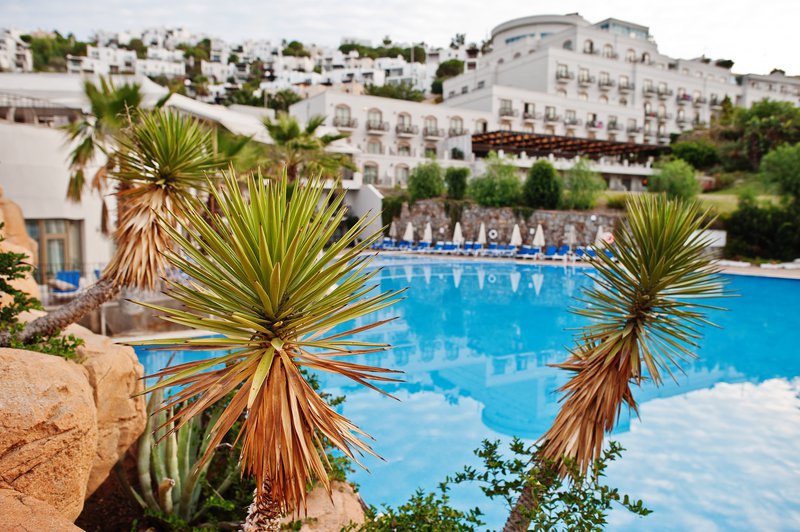The hotel sector has shown good dynamism and presents positive projections for the coming months. In the second quarter, hotels stood out as the leading "asset class" after reaching an investment of 879 million euros, representing 41% of total real estate investment in Spain, according to CBRE data.
During the first half of the year, hotels ranked second in terms of investment volume, second only to the living sector, accounting for 27% of real estate investment, with 1,390 million euros in 44 transactions.
Institutional funds were the predominant investor profile between January and June, with 52% of total investment, while private investors accounted for 31%. In terms of origin of capital, international buyers, mainly from France and Saudi Arabia, dominated the market with 68% of the investment, compared to 32% from domestic buyers.
During the first half of 2023, a total of 55 hotel asset transactions took place in Spain, comprising a total of 6,978 rooms. These numbers compare with 77 hotels and 9,384 rooms transacted in the same period of 2022.
International buyers, mainly from France and Saudi Arabia, dominated the market with 68% of the investment.
It was also noted that luxury hotels attracted more than half of the investment, split between two Grand Luxury hotels (21%) and seven 5-star hotels (30%). This increased investment interest in the luxury segment is due to its recognised resilience and low elasticity to economic changes.
In terms of transaction volume, 4-star assets accounted for 37% of the total, with 25 hotels involved, while 3-star hotels made up the remaining 8%, with a total of ten hotels.
In the area of portfolio operations, four hotel portfolio transactions were carried out during the second quarter, totalling €337 million, representing 24% of the total investment in the first half of the year. The remaining 76% was allocated to individual assets.

In terms of asset type, investment in vacation hotels continued to outpace the urban segment during the first half of the year, with 53% versus 47%. In particular, Barcelona remained the leader in investment, accounting for 33% of the volume transacted, equivalent to €462 million in five individual transactions. The Balearic Islands came a close second with 31% of investment, reaching €417 million through four portfolio transactions and four individual transactions. Madrid and Malaga also showed significant shares, with 11% and 8% respectively.
Barcelona remained the leader in investment, accounting for 33% of the volume transacted, equivalent to EUR 462 million in five individual transactions.
In terms of new openings, the Balearic Islands and Madrid led with 15% and 13% of the total number of rooms opened in the first half of the year. Around 290 hotels (with approximately 31,000 rooms) are expected to open in Spain by 2024. Of the total number of new hotels, 23% will be high-end (5-star and 5-star GL), and approximately 55% of them will be concentrated in Madrid, Malaga, Valencia and the Islands (Mallorca, Ibiza, Gran Canaria and Tenerife).
Jorge Ruiz, Director of CBRE Hotels, comments: "Tourism in Spain is once again breaking records and is at a time of redefinition, with new demands from visitors and the need for a differential offer. The good tourism data and the operating results of the hotel industry support the dynamism of the sector, which leads investment in the second quarter and whose volume in the first half of the year, with the exception of 2022, is the best record of the last six years".
The hotel industry's operating results during the first half of the year showed higher levels than those recorded a year ago and pre-pandemic figures. Specifically, ADR (average price per occupied room) stood at 102.48 euros (+10% vs. H1 2022) and RevPar (average revenue per available room) reached 65.66 euros (+22% vs. H1 2022).
Prime rental yields increased by 25 basis points during the second quarter, reaching 5% in Madrid and Barcelona and 6% in the Islands. According to Jorge Ruiz, "The trend for the coming months is upwards in line with the main European capitals due to the rising cost of debt. However, we expect investment activity to pick up again in the second half of the year, especially in the fourth quarter, supported by the good tourism fundamentals, although we do not rule out possible price adjustments".





